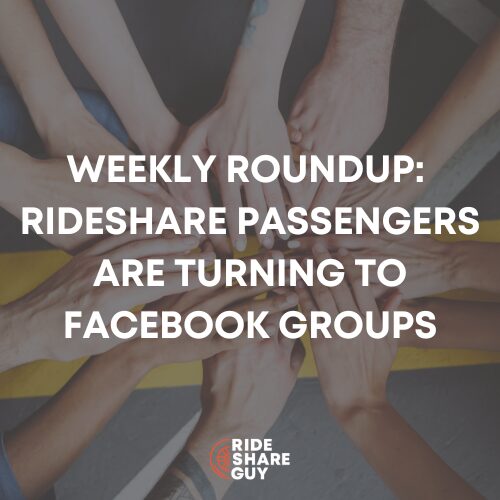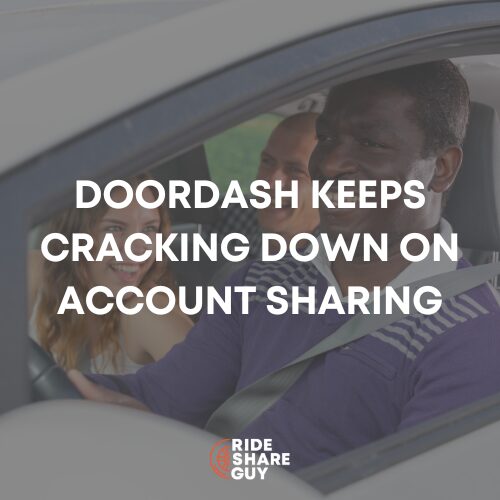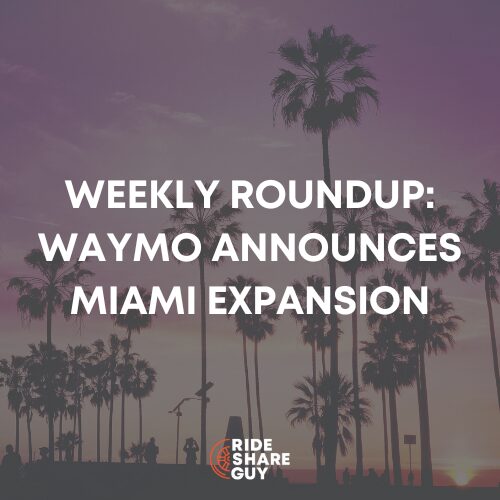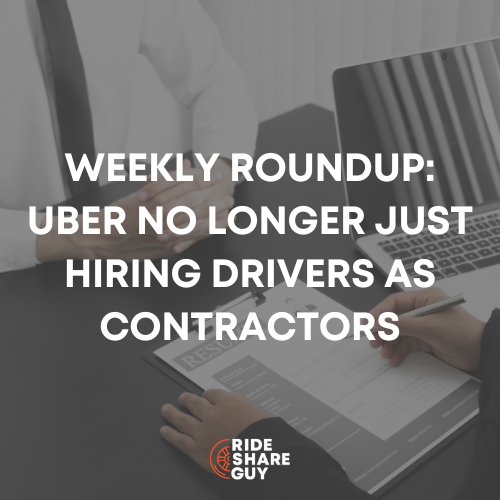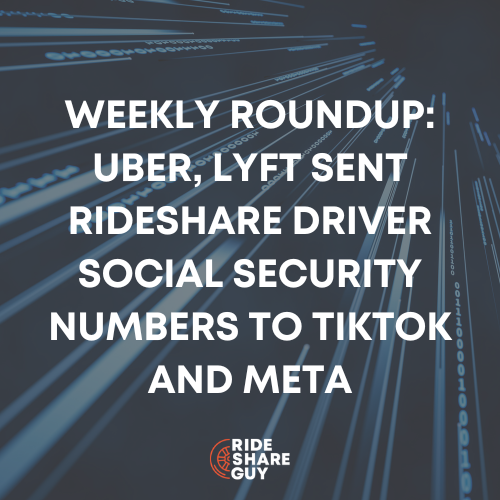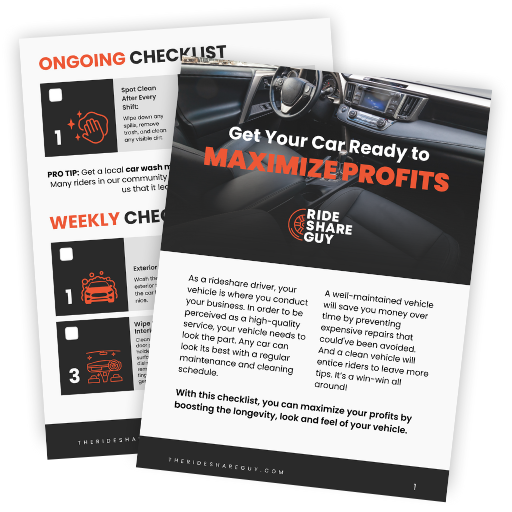With the current traffic laws, driverless vehicles won’t be given tickets for infractions.
Also in the news, a half-dozen ballots that affect rideshare drivers, NY worker’s comp fun for Uber, and Lyft drivers are able to charge fees on tips.
Meanwhile, is the Hertz/Tesla partnership not working out in the U.S.?
Join RSG Contributor Paula Lemar as she breaks down the top headlines in this week’s rideshare news.
Driverless Cars Immune From Traffic Tickets In California Under Current Laws
Topic Originally Appeared On NBC News
Summary
Mounting concerns over self-driving cars — headlined by allegations that autonomous vehicle maker Cruise misled the California Department of Motor Vehicles about an accident in San Francisco that seriously injured a pedestrian — have some people questioning whether the state needs new laws and new watchdogs to govern the technology’s rapid expansion.
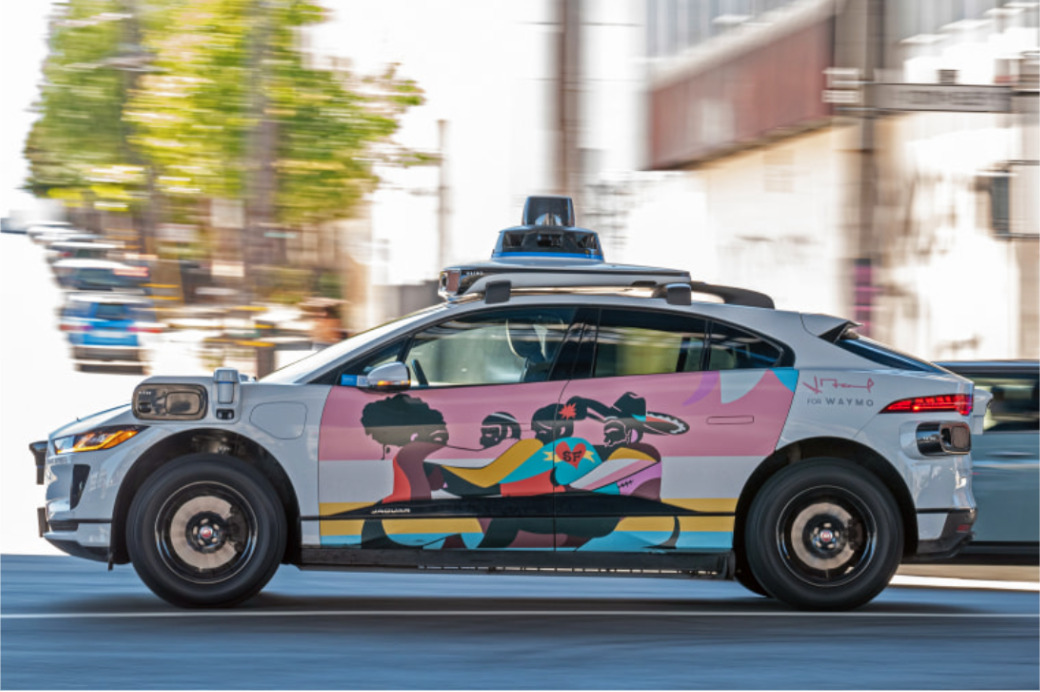
City streets serve as testing grounds for hundreds of self-driving cars in California, despite ongoing safety concerns and gray areas surrounding law enforcement’s ability to cite robot cars when they violate traffic laws.
“I think all of us are still struggling to understand whether [driverless cars] really are safer than human drivers and in what ways they might not be,” said Irina Raicu, the director of the Internet Ethics program at the Markkula Center for Applied Ethics at Santa Clara University.
My Take
Well, that’s interesting. How can you charge a driver with a ticket when there is no driver? But if it’s violating some kind of parking or moving law, shouldn’t the creators then be charged for the violation?
For example, would a driverless vehicle just keep circling a block until there was an open space to park to pick up passengers? Or would it stop in the middle of the street or pull into a bus loading zone to pick them up, which would be something an Uber driver could get a ticket for?
If the driverless vehicle violates a law, in my opinion, the violation should be sent to the company the vehicle was used for. And then that would be a learning curve for the company to work into their programming moving forward.
A Half-Dozen Ballot Measures Affecting Uber And Lyft Drivers Cleared A Hurdle For The November Ballot. It’s As Complicated As It Sounds.
Topic Originally Appeared On Boston Globe (Archive.ph)
Summary
As many as six proposals that would reshape the employment status of Uber and Lyft drivers in Massachusetts cleared a key hurdle toward making the November ballot, state officials said Wednesday, raising the prospect of voters confronting a complicated tangle of issues unless state lawmakers act.
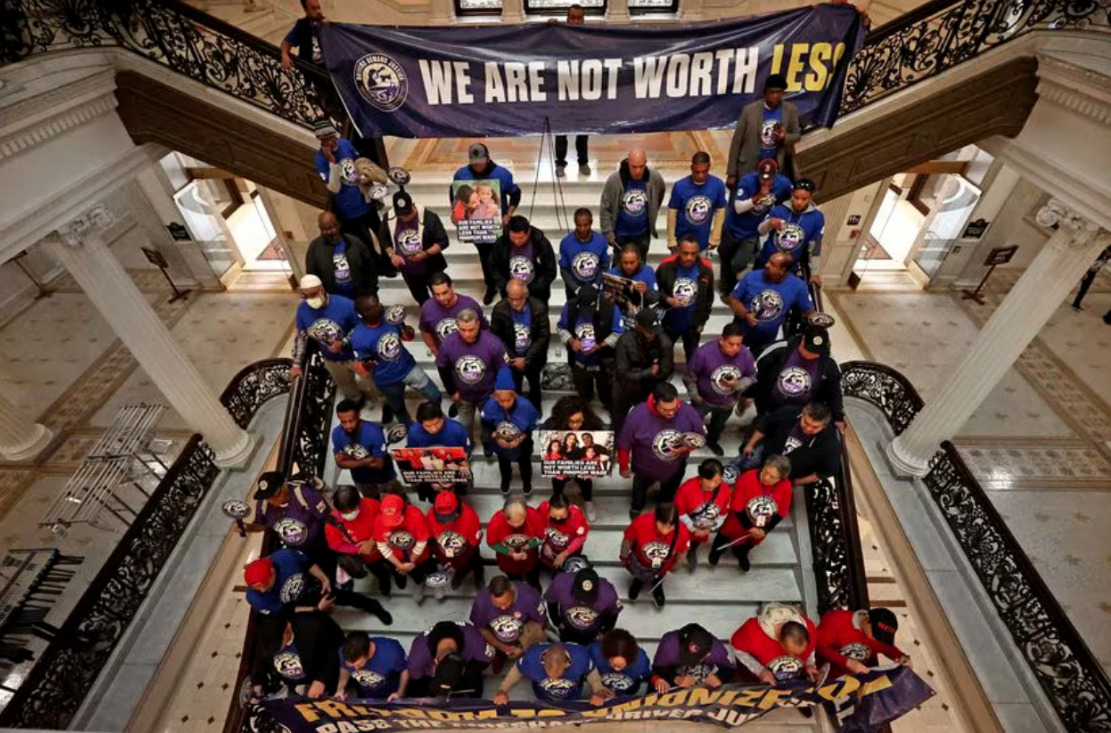
The ride-share-related petitions are among ten the secretary of state’s office said gathered the 74,000-plus signatures necessary to officially move to the Legislature, which now has until the end of April to either pass or propose a substitute for each proposed ballot question.
If lawmakers fail to act, supporters of the measures must gather more signatures to officially land their questions on the November ballot.
The crop of 10 ballot proposals that officially advanced include high-profile bids to eliminate the MCAS exam as a high school graduation requirement and legalize the possession of natural psychedelics, including psilocybin mushrooms.
But it’s the plethora of ride-share proposals — a fraction of which are expected to ultimately survive — that represent the knottiest debate.
My Take
With a new year comes new legislation, most especially since it’s a big ticket year for voting. While November may be 11 months away, we’re going to see a lot of information coming out about what will be on the ballot.
Right now, it looks like rideshare is going to be popping up all over the place. To learn more about what has been done on ballots in the past, read up on Prop-22, which was placed on the ballot in California, allowing the public to enact it via their votes.
Keep a close eye on your local ballots as well as national ballots for any changes proposed to the rideshare industry.
Be sure to do your research on what the changes could mean for you as a driver. The last thing you want is to accidentally vote for or against something that would make your situation worse.
Why Hertz’s Bet On Tesla Isn’t Paying Off In The U.S.
Topic Originally Appeared On YouTube
Summary
In October 2021, Hertz publicly announced its intention to buy 100,000 Tesla vehicles. Newly emerging from bankruptcy, Hertz had a bold plan to lead the EV revolution in car rental. Shares of Hertz soared, as did Tesla’s – its market value hit $1 trillion.
First-mover advantage aside, it would help Hertz distinguish itself in an industry plagued by commoditization. But only a couple of years in, the rental company’s EV strategy is facing some serious challenges: pricing troubles, skyrocketing repair costs, and low resale values.
Meanwhile, big rental rivals are holding back on EVs. Hertz’s investors are divided over what to do next: either kill or at least pause the EV initiative or try to find a way to make it work.
Also, the company is planning to reduce the share of Tesla vehicles in its fleet and buy more from other automakers.
My Take
Harry was interviewed for this video. In part, he said, “I think from my perspective, Hertz and Uber has been a great partnership. I think that Uber really needs Hertz, and Hertz really needs Uber.”
He continued, “There’s really no better use case, in my mind, than an Uber driver who’s going to put 1,500 miles a week on their car to not only rent a car but to rent an electric vehicle.”
So, while the overall partnership between Hertz and Tesla may not be doing what the companies expected or intended, it is bridging a gap for rideshare drivers who don’t want to put extra miles on their personal vehicles or who can’t afford to buy a Tesla upfront.
If you’re not familiar with this partnership, read this Real Driver’s Experience Renting a Tesla to Drive for Uber.
NY Workers’ Comp Fund For Uber, Lyft Drivers Can Charge Fees On Tips, Court Rules
Topic Originally Appeared On Reuters
Summary
A U.S. appeals court on Tuesday said a fund created by the state of New York to compensate black car drivers who are injured on the job did not break the law by imposing a fee on noncash tips given to drivers, nixing an $8.5 million award for a class that could include hundreds of thousands of passengers.
A unanimous three-judge panel of the 2nd U.S. Circuit Court of Appeals said the state law that created the New York Black Car Operators’ Injury Compensation Fund more than 20 years ago clearly permits it to levy the surcharge, and a federal judge was wrong to rule otherwise.
The plaintiff in the 2018 class action argued that the surcharge, which the fund used to cover its operating costs, amounted to an unlawful tax on tips and accused the fund of unjust enrichment.
The fund required black car services to collect the surcharge, which could be passed on to customers, and send the money to the fund each month.
My Take
I’m glad that there is a distinction between cash tips and tips earned within the app. However, it sounds like these terms were not clearly communicated previously, which makes this a sticky situation, to say the least.
It also seems to go against the standard policy of Uber and Lyft, stating that drivers get to keep 100% of their tips. It also sounds like there are still arguments between both parties as to what a tip is in relation to the services provided.
Personally, since tips are not required, I would err on the side of them not being part of the services.
Must Listen Or Watch RSG Content
Here are this week’s featured podcast episode and YouTube videos:
- RSG251: How Vugo is Helping Fleet Owners Earn More With In Car Advertising
- Uber EXTENDING ASU Online Program To Include Honors College
- 5 TRUTHS Uber Eats & DoorDash Want Us To IGNORE
- How To Give Yourself A PROMOTION When Driving In The Gig Economy
- Make sure you Subscribe so you don’t miss out on future conversations and interviews!
